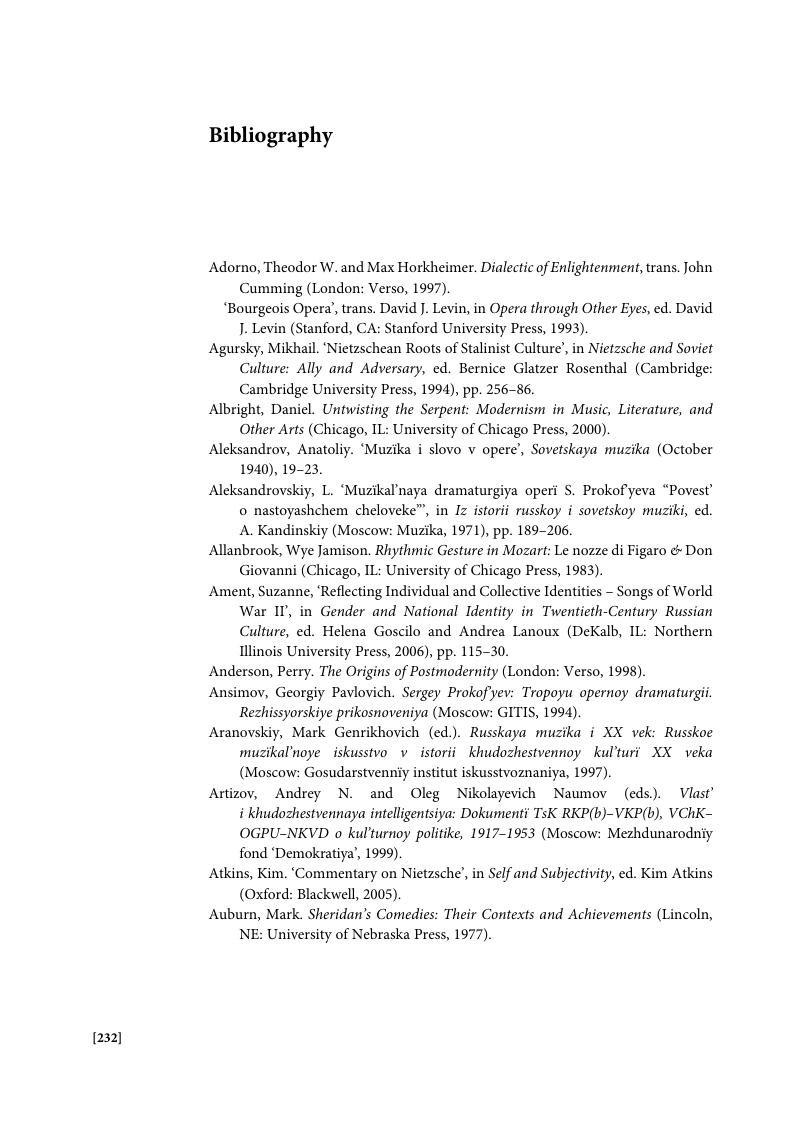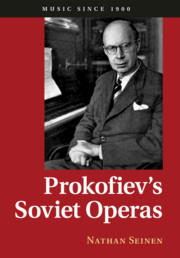Book contents
- Prokofiev’s Soviet Operas
- Music Since 1900
- Prokofiev’s Soviet Operas
- Copyright page
- Contents
- Music Examples
- Tables
- Acknowledgements
- Note on Terminology and Transliteration
- Introduction
- 1 Semyon Kotko and the Melodrama of High Stalinism
- 2 Buffered by Buffa: Betrothal in a Monastery
- 3 Kutuzov’s Victory, Prokofiev’s Defeat: The Revisions of War and Peace
- 4 The Story of a Real Man and Late Stalinist Subjectivity
- Conclusion
- Bibliography
- Index
- References
Bibliography
Published online by Cambridge University Press: 29 August 2019
- Prokofiev’s Soviet Operas
- Music Since 1900
- Prokofiev’s Soviet Operas
- Copyright page
- Contents
- Music Examples
- Tables
- Acknowledgements
- Note on Terminology and Transliteration
- Introduction
- 1 Semyon Kotko and the Melodrama of High Stalinism
- 2 Buffered by Buffa: Betrothal in a Monastery
- 3 Kutuzov’s Victory, Prokofiev’s Defeat: The Revisions of War and Peace
- 4 The Story of a Real Man and Late Stalinist Subjectivity
- Conclusion
- Bibliography
- Index
- References
Summary

- Type
- Chapter
- Information
- Prokofiev's Soviet Operas , pp. 232 - 249Publisher: Cambridge University PressPrint publication year: 2019

